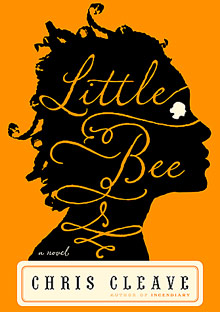
Author: Ursula K. Le Guin
Pages: 300+
Publisher's Description:
'On the planet Winter, there is no gender. The Gethenians can become male or female during each mating, and this is something humans find incomprehensible. The Ekumen of Known Worlds has sent an ethnologist to study the Gethenians of their forbidding, ice-bound world. At first he finds his subjects difficult and off-putting, with their elaborate social systems and alien minds. But in the course oa long journey across the ice, he reaches an understanding with one of the Gethenians -- it might even be a kind of love..'
I really enjoyed reading this book. The world and story Le Guin creates is so creative and original, and the subtle details make the characters believeable...If you've ever been in bone-chilling weather, the description of the weather and Genly Ai's (principal character and ethnologist) reactions, on the planet Winter will ring true.
Genly Ai meets a variety of Gethenians during his stay on Winter, many of which are high-ranking officials/diplomats who will heavily influence his task of recruiting the nation of Kardhide to what I took to be a inter-cosmo/galaxy union of planets who all seek the trade, knowledge and innovation of all other members...sort of like the EU, but with planets. However, there is one problem: the nation of Karhide is at odds with the neighboring country of Orgoreyn. This produces a lot of tension around Gethenian elite and produces an equal amount of uncertainty for the ethnologist; making his task all the more difficult.
Genly Ai meets a variety of Gethenians during his stay on Winter, many of which are high-ranking officials/diplomats who will heavily influence his task of recruiting the nation of Kardhide to what I took to be a inter-cosmo/galaxy union of planets who all seek the trade, knowledge and innovation of all other members...sort of like the EU, but with planets. However, there is one problem: the nation of Karhide is at odds with the neighboring country of Orgoreyn. This produces a lot of tension around Gethenian elite and produces an equal amount of uncertainty for the ethnologist; making his task all the more difficult.
When I first started reading the book, and learned the Gethenian race was ambisexual, dual-gendered, androgenous until a cycle of kemmer, I was unsure of where the story was going...but as the story continued I quickly discovered that differences between aliens/races of men only matter on the surface. In fact, besides being nicknamed, 'the pervert', Genly Ai is treated with utmost respect for the majority of the novel...until an unfortunate turn of events.What mattered in the end, was friendship, loyalty and honesty.
Nothing negative to say about this novel...My favorite part is easily the impossible trip Genly Ai has to make near the end. It is here when true friendship is discovered and with a bit of luck, life manuevers out of the deathly cold grip of Winter.
The Left Hand of Darkness
Five stars




